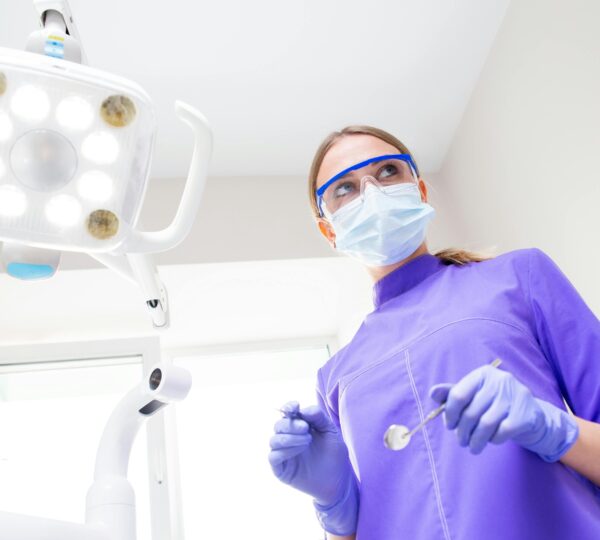
The importance of regular health check-up
Recently, I stumbled upon the story of a woman who noticed a bump on the right side of her stomach. Because she didn’t feel any pain or other symptoms, she took it for granted. It was over four months after the bump appeared that she finally went to see a doctor, only because it was getting noticeably bigger. After several tests and examinations, she had to undergo surgery. The doctors were amazed that she had let it linger for so long and were concerned about the severe complications it could have resulted in.
Health check-ups aren’t just for when we are in pain; they are an opportunity to ensure your body is functioning well, address any issues early, and gain insights into maintaining or improving your health. Here are some key reasons why you should prioritize regular check-ups:
- Early Detection: The Key to Effective Treatment
Think of regular health check-ups as your personal health radar. They’re designed to detect problems early, often before you even notice symptoms. For instance, consider high blood pressure, which can quietly damage your arteries and heart over time. According to the American Heart Association, nearly half of U.S. adults have high blood pressure, but many are unaware. Early detection through routine check-ups allows for timely intervention, potentially preventing serious conditions like heart disease or stroke.
A 2023 study published in JAMA Network Open highlights how routine screenings can reduce the risk of advanced disease. For example, regular blood tests can catch elevated blood sugar levels early, signaling a risk of diabetes. With prompt lifestyle changes or medication, you can manage or even reverse the condition.
- Preventive Healthcare: An Ounce of Prevention
Preventive care is about more than just avoiding illness; it’s about proactively maintaining your health. Regular check-ups give your doctor a chance to assess your risk factors based on your family history, lifestyle, and age. For instance, vaccinations, recommended screenings like mammograms and colonoscopies, and lifestyle advice can significantly reduce your risk of serious diseases.
Recent guidelines from the U.S. Preventive Services Task Force emphasize the importance of preventive care in reducing long-term health costs. By addressing risks before they become problems, you can avoid costly treatments and hospitalizations down the line.
- Managing Chronic Conditions: Stay on Top of Your Health
If you have a chronic condition like diabetes or high blood pressure, regular check-ups are vital. They ensure that your condition is well-managed and that treatments are effective. A 2024 report from the Centers for Disease Control and Prevention (CDC) underscores the importance of regular monitoring to prevent complications, such as kidney failure or heart disease.
Regular visits allow your doctor to adjust treatments as needed, helping you stay on top of your condition and avoid potential complications. This ongoing management can make a significant difference in your quality of life.
- Building a Strong Patient-Doctor Relationship: Trust Matters
A regular health check-up fosters a strong, trusting relationship with your healthcare provider. This relationship is crucial for personalized care. A doctor who understands your health history and lifestyle can offer tailored advice and support. Research from the Journal of General Internal Medicine shows that patients with strong relationships with their healthcare providers experience better health outcomes and greater satisfaction with their care.
- Health Awareness and Education: Knowledge is Power
Routine check-ups are an opportunity to learn more about your health. Your doctor can provide valuable information on diet, exercise, and stress management. According to a 2024 review in Health Affairs, informed patients who actively engage in their health decisions are more likely to make beneficial lifestyle changes and adhere to treatment plans.
- Cost Savings: Prevention Pays Off
Preventive care and early treatment can save money in the long run. A 2024 study from the American Journal of Preventive Medicine found that preventive care can significantly reduce healthcare costs by avoiding expensive emergency treatments and hospitalizations. Early detection and management of health issues are generally much cheaper than addressing advanced diseases.
How Often Should You Get a Health Check-Up?
The frequency of check-ups depends on your age, health history, and lifestyle. Here’s a general guideline:
- In Your 20s and 30s: Every 2-3 years if you’re healthy. Check-ups typically include blood pressure, cholesterol levels, weight, and basic blood tests.
- In Your 40s and 50s: Annually or every 1-2 years. Screenings for heart disease, diabetes, and cancers become more crucial.
- Over 60: Annually or more frequently if you have chronic conditions. Comprehensive check-ups include vision, hearing tests, and bone density scans.
What to Expect During a Check-Up
A typical check-up includes:
- Medical History Review: Discuss changes in health, family history, and lifestyle.
- Physical Examination: Check vital signs and overall physical health.
- Lab Tests: Blood tests for sugar levels, cholesterol, and other markers.
- Cancer Screenings: Mammograms, pap smears, and other screenings based on age and risk factors.
- Vaccinations: Ensure you’re up-to-date with recommended vaccines.
Maintaining Health Between Check-Ups
While check-ups are essential, maintaining your health requires ongoing effort:
- Balanced Diet: Focus on whole foods and avoid processed items.
- Regular Exercise: Aim for 150 minutes of moderate activity weekly.
- Hydration: Drink plenty of water.
- Sleep: Get 7-9 hours of quality sleep each night.
- Stress Management: Practice relaxation techniques.
- Avoid Harmful Habits: Limit alcohol and avoid smoking.
Conclusion
Regular health check-ups are a cornerstone of good health. They offer early detection of potential issues, support preventive care, and help manage existing conditions effectively. By prioritizing regular check-ups, you’re not only protecting your health but also saving on future healthcare costs. Make your health a priority—schedule your next check-up today and take a proactive step toward a healthier future.
Remember, your future self will thank you for the commitment you make to your health today.
References for Citation
- American Heart Association. (2023). High Blood Pressure. Retrieved from https://www.heart.org
- JAMA Network Open. (2023). The Effect of Routine Screenings on Disease Outcomes. Retrieved from https://jamanetwork.com
- Centers for Disease Control and Prevention (CDC). (2024). Managing Chronic Diseases. Retrieved from https://www.cdc.gov
- Journal of General Internal Medicine. (2023). Patient-Doctor Relationship and Health Outcomes. Retrieved from https://link.springer.com/journal/11606
- Health Affairs. (2024). Health Education and Patient Engagement. Retrieved from https://www.healthaffairs.org
- American Journal of Preventive Medicine. (2024). Economic Benefits of Preventive Care. Retrieved from https://www.ajpm-online.net












